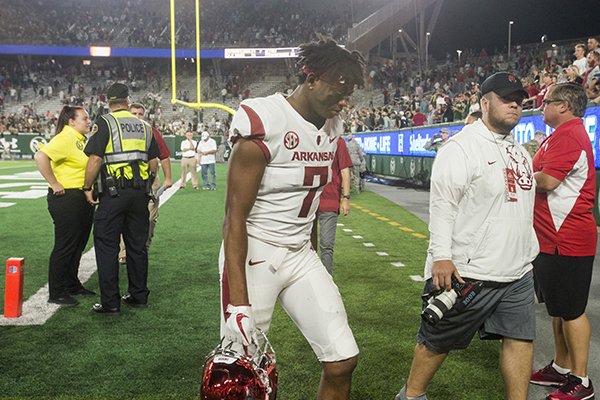I still cringe when I hear fans and some in the media flatter coaches by labeling them gurus or geniuses.
I like coaches. I respect coaches. Many coaches appear quite intelligent.
But genius?
That description is far better suited for people like Jonas Salk, who discovered and developed a vaccine for polio, NASA engineers who helped put a man on the moon, and whomever, hopefully, will discover the cure that defeats cancer.
Coaches aren’t geniuses. If they were, they wouldn’t have strongly supported a rule change in college football that lets a player quit after four games and maintain that whole year of eligibility at another school the following season.
The coaches didn’t see this one coming, for sure. The rule was designed for incoming freshman to see some action instead of redshirting or spending the year on the bench. But upperclassmen in college football proved smarter than their coaches and NCAA administrators.
The most stunning departure occurred at Oklahoma State, where senior Jalen Mc-Cleskey quit on his team after four games despite his status as a starter. McCleskey will leave the Cowboys as one of the top 10 receivers in school history.
OSU coach Mike Gundy said McCleskey told him he wasn’t getting the ball enough, then Gundy was very careful in a press conference not to criticize the player’s decision. Gundy instead directed his ire toward the media when he instructed people working in the OSU sports information department to pull credentials for any reporter who asked players about McCleskey’s departure.
Hey, coach. We didn’t cause this problem. You and the other coaches who make millions of dollars did this because you couldn’t decide who should play and who should sit. The NCAA offered you an easy option, and you took it, enthusiastically.
Last week, coaches all over the country reacted with surprise about how they’d been outsmarted by players in their 20s.
“I think it is a surprise, to be honest,” Vanderbilt coach Derek Mason said from the most academic of SEC schools. “But at the end of the day, the rule was made, and now what we are doing is giving young people a chance to figure out where they belong, even if all the guys transfer.”
Mason said he now checks on the older guys to make sure they’re happy.
There were departures at other schools, including Arkansas, where leading returning receiver Jonathan Nance decided to move on. Auburn lost four players, including a veteran receiver and tight end. Even Clemson, a national championship contender, lost its senior quarterback after he was replaced by a freshman.
Kelly Bryant left the team just hours after Dabo Swinney told reporters he didn’t think Bryant would apply for a transfer because Bryant loved Clemson so much. Bryant’s departure was felt immediately on Saturday when quarterback Trevor Lawrence was injured against Syracuse. Instead of Bryant trotting back onto the field, Clemson had to turn to red-shirt freshman Chase Brice, who bumped up to No. 2 on the depth chart ahead of true freshman Ben Batson.
The rule has destroyed Clemson’s depth chart on the most important position on the field, and it could happen to any team.
So, now what?
Will the NCAA tweak the rule to prevent upperclassmen from transferring four games into the season without penalty, or is this the new norm where players have much more freedom of movement?
I’m not sure. But when an athlete says he’ll play anywhere, do anything to help the team, I’ll view those comments with even more skepticism. Free agency for college football is here, folks, ushered in by college coaches who were blindsided by a rule they thought would make their job and decision-making easier.
Let’s not forget. College football isn’t the only place where so-called geniuses are being exposed. New England coach Bill Belichick, the best in the NFL, lost last week to Detroit and its new coach Matt Patricia, a former longtime assistant with the Patriots.
Genius? Nope. Not even Belichick.
People my age grew up watching Looney Tunes cartoons on Saturday mornings, including an animation that featured Wile E. Coyote, a self-described “Super Genius,” who devised elaborate plans but was never able catch the Road Runner.
College coaches to me are like Wile E. Coyote because this new rule concerning eligibility certainly blew up in their faces.
Beep, beep.
Rick Fires can be reached at rfires@nwadg.com or on Twitter@NWARick.
